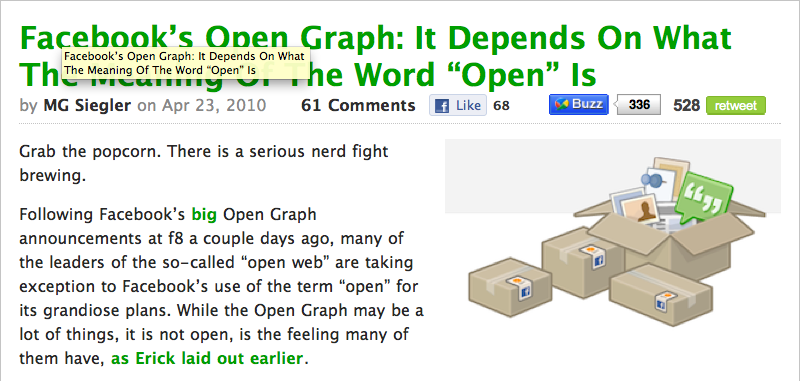(2) Abstract
It has become commonplace to praise the Web as "open" or to hear impassioned defenses of "the Open Web." But what does it mean for an information system to be open? Today we will examine some varying definitions of openness, and guest speaker [http://www.ischool.berkeley.edu/people/students/ashwinmathew] will present some questions about issues about "openness" raised by his study of the Internet Working Protocols.Where do domain names come from? Who secures HTTPS transactions? How are IP addresses allocated? In this lecture, Ashwin will address these questions and more, exploring the infrastructure of the Internet as social and political system; just as much as it is a technical system.
(4) "Open" according to Google [1]
At Google we believe that open systems win. They lead to more innovation, value, and freedom of choice for consumers, and a vibrant, profitable, and competitive ecosystem for businesses. Many companies will claim roughly the same thing since they know that declaring themselves to be open is both good for their brand and completely without risk. After all, in our industry there is no clear definition of what open really means. It is a [http://en.wikipedia.org/wiki/Rashomon_effect]-like term: highly subjective and vitally important.
Jonathan Rosenberg, [http://googleblog.blogspot.com/2009/12/meaning-of-open.html], Official Google Blog, 2009
(8) "Open" according to Facebook [1]
- Anyone can read metadata embedded in HTML pages
- Created and implemented by more than one company
- Available under an open license
David Recordon, [http://groups.google.com/group/open-graph-protocol/msg/5b700e5b7e563acf?pli=1], 2010
![]() [http://creativecommons.org/licenses/by/3.0/]
[http://creativecommons.org/licenses/by/3.0/]